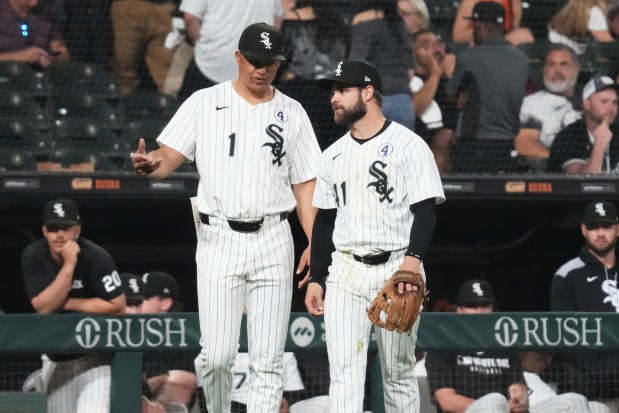WARSAW, Poland — An exit poll in Poland’s presidential runoff on Sunday shows the two candidates are very close and that the race is still too close to call. The results could set the course for the nation’s political future and its relations with the European Union.
An Ipsos exit poll predicts that liberal Warsaw mayor Rafał Trzaskowski won 50.3% of the vote and conservative historian Karol Nawrocki won 49.7%. The poll has a margin of error of plus or minus 2 percentage points and the final vote is likely to change somewhat.
The state electoral commission was expected to release the final vote count on Monday, though the result could be known sooner.
Poles voted in a decisive presidential runoff pitting Warsaw Mayor Rafał Trzaskowski, a liberal pro-EU figure, against Karol Nawrocki, a conservative historian backed by the right-wing Law and Justice party.
The outcome will determine whether Poland takes a more nationalist path or pivots more decisively toward liberal democratic norms. With conservative President Andrzej Duda completing his second and final term, the new president will have significant influence over whether Prime Minister Donald Tusk’s centrist government can fulfill its agenda, given the presidential power to veto laws.
The runoff follows a tightly contested first round on May 18, in which Trzaskowski won just over 31% and Nawrocki nearly 30%, eliminating 11 other candidates.
Katarzyna Malek, a 29-year-old voter in Warsaw, cast her ballot in the first round for a left-wing candidate but went for Trzaskowski on Sunday, viewing him as more competent and more likely to pursue stronger ties with foreign partners and lower social tensions.
“I hope there will be less division, that maybe there will be more dialogue,” she said.
The campaign has highlighted stark ideological divides. Trzaskowski, 53, has promised to restore judicial independence, ease abortion restrictions and promote constructive ties with European partners. Nawrocki, 42, has positioned himself as a defender of traditional Polish values, skeptical of the EU and aligned with U.S. conservatives, including President Donald Trump.
Nawrocki’s candidacy has been clouded by allegations of past connections to criminal figures and participation in a violent street battle. He denies the criminal links but acknowledges having taken part in “noble” fights. The revelations have not appeared to dent his support among right-wing voters, many of whom see the allegations as politically motivated.
Some of those voting for Nawrocki in Warsaw dismissed those allegations, saying he shouldn’t be punished for his past and that Trzaskowski has also made mistakes as mayor.
Władysława Wąsowska, an 82-year-old former history teacher, recalled instilling patriotism in her students during the communist era, when Poland was under Moscow’s influence.
“I’m a right-wing conservative. I love God, the church and the homeland,” she said, explaining that Nawrocki for her is the only patriotic choice, and accusing Trzaskowski of serving foreign interests.
“He’s controlled by Germany,” she said. “I want a sovereign, independent, democratic Poland — and a Catholic one.”
Amid rising security fears over Russia’s war in neighboring Ukraine, both candidates support aid to Kyiv, though Nawrocki opposes NATO membership for Ukraine, while Trzaskowski supports it in the future.
Nawrocki’s campaign has echoed themes popular on the American right, including an emphasis on traditional values. His supporters feel that Trzaskowski, with his pro-EU views, would hand over control of key Polish affairs to larger European powers like France and Germany.
Many European centrists are rooting for Trzaskowski, seeing in him someone who would defend democratic values under pressure from authoritarian forces across the globe.



